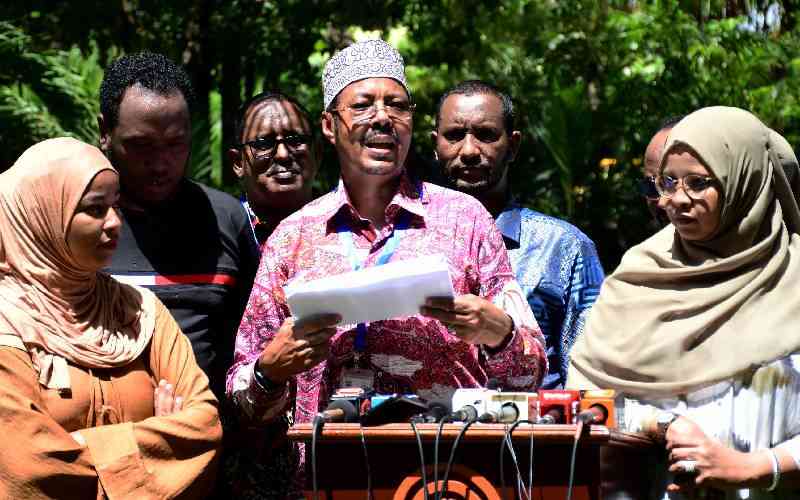×
The Standard e-Paper
Join Thousands Daily

MPs from North Eastern have called for urgent action to address marginalisation of the region since independence.
Under the umbrella of North Eastern Parliamentary Group (NE-PG), the leaders from Garissa, Wajir and Mandera decried poor infrastructure, insecurity, education challenges, lack of basic services and economic underdevelopment following years of state neglect.







